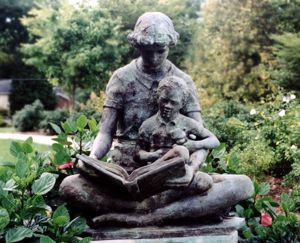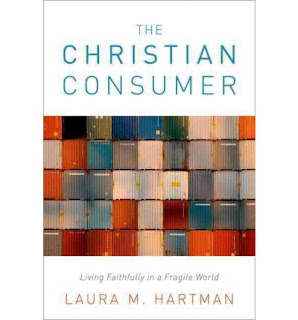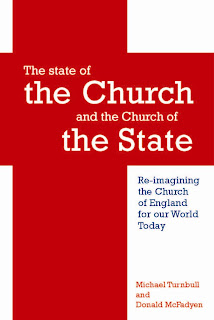February 2012 Book Reviews
Here is a selection of books reviewed for February. The Archbishop of Canterbury's 2012 Lent Book Love Unknown, is among them. Useful Lenten reading for those of us in consumer societies will also be found in the volume by Laura Hartman.
In addition there are meaty theological works on several topics: how we may have misread St Augustine, missiology (important for our Diocese), the Cross and Resurrection and Liturgics. There are two challenging works on the place of religion in society, one looking at the erosion of its place in the West, and another on the role of the Established Church. We can read the latter with a certain objectivity, as we live in the part of the Church of England that is not estabished by law! (Except perhaps in Belgium, but now we're getting complicated...!)
As usual I am indebted to Dr Martin Davie, the Bishops' Theological Advisor, for these reviews.
Bonne lecture!
For the reviews press the read more button.
In addition there are meaty theological works on several topics: how we may have misread St Augustine, missiology (important for our Diocese), the Cross and Resurrection and Liturgics. There are two challenging works on the place of religion in society, one looking at the erosion of its place in the West, and another on the role of the Established Church. We can read the latter with a certain objectivity, as we live in the part of the Church of England that is not estabished by law! (Except perhaps in Belgium, but now we're getting complicated...!)
As usual I am indebted to Dr Martin Davie, the Bishops' Theological Advisor, for these reviews.
Bonne lecture!
For the reviews press the read more button.
Stephen Burns (ed) The
Art of Tentmaking, Canterbury Press, ISBN 978-1-84825-030-7, £35.00 (Kindle
edition available)
Richard Giles has been one of the most influential Anglican
liturgical pioneers of recent times. This collection of essays edited by
Stephen Burns from the United Theological College in Australia seeks to honour
his work and its title is a deliberate echo of his own bestseller Re-pitching the Tent. A distinguished
international group of theologians and liturgists from the Anglican, Roman
Catholic and Lutheran traditions share their reflections on essential aspects
of liturgical practice and liturgical renewal. Contributions include Paul
Bradshaw (our own Diocesan Liturgical Advisor) on the history of Christian
worship, Rosalind Brown on participation and the priesthood of all believers, Stephen
Cottrell on sacramental spirituality, Steven Croft on simplicity in the
liturgy, Carol Doran on the renewal of church music and Martyn Percy on
openness and inclusivity. This is a stimulating volume that will be of interest
to anyone with responsibility for Christian worship including not only members
of the clergy, but also lay ministers, musicians, artists and architects with
an interest in the development and re-ordering of church buildings.
The author of The Archbishop of Canterbury’s Lent Book for
2012 is Sister Ruth Burrows, a Carmelite nun from Quidenham in Norfolk. As she
explains in her introduction, her motivation was ‘an abiding grief’ that many
Christian people, including regular churchgoers, ‘understand little of the
great truths they sincerely profess to believe.’ Her special grief, she says, ‘is
for our young people. As children they accompany their parents to church and
delight in what goes on, perhaps active in the liturgy as acolytes and servers.
But unless a real love for Jesus is awakened in their hearts, unless they have
been helped to perceive something of the wonder and sheer beauty of the content
of the faith in which they are instructed, how can they withstand the atheism
of our materialist society? It is the very air they must breathe.’ The aim of
our her book is therefore to help people to deepen their knowledge and love of
God and she does this by tracing how God reveals himself to us through our
personal lives, history, the natural world, the Scriptures and above all,
through Jesus. Archbishop Rowan in his foreword says, Burrows ‘takes us on a
journey through the biblical narrative in lucid and accessible terms, to show
how… awareness of God as gift and lover comes to birth in the experience of
God’s people and is made clear and effective once for all in Jesus, so that the
blockage of our frantic self-obsession is at last broken by his Spirit.’ This
is a very helpful volume for anyone who wants to spend Lent renewing or
deepening their understanding of the Christian faith or who is looking for an
attractive and accessible introduction to the faith to give to others.
Ross Clifford and Philip Johnson, The Cross is Not Enough: Living as Witnesses to the Resurrection,
Baker, ISBN 978-0-80101-461-1, £13.99. (Kindle
edition available)
There is a long tradition of Christian theology and
spirituality that sees the cross as the heart of Christian faith and
discipleship. This new book by two Australian Baptist theologians seeks to
challenge this tradition. They argue that vital though the cross is it is not
the heart of the Christian faith. As they see it, according to the New
Testament, it is instead the resurrection that is at the heart of what
Christianity is all about and in their book they seek to communicate this
conviction. They look at how the resurrection is understood in the New
Testament and how it has been understood in the history of the Church. They
compare Christianity's unique understanding of resurrection with the beliefs of
other world religions, to explore why the resurrection connects so readily with
the human psyche, and to trace themes of resurrection through movies, books,
music, and other aspects of popular culture. They seek to explore not only how
the resurrection has been understood in the past, but how it can contribute to
the care and growth of the whole person today and how a right understanding of
the significance of the resurrection can help to shape a holistic Christian
worldview that can form the basis for mission in a post Christian society. This
is a significant book that can be commended to anyone who wants to think more
deeply about the significance of the resurrection for Christian life and
witness today.
John Corrie and Cathy Ross (eds), Mission in Context: Explorations inspired by J Andrew Kirk, Ashgate,
ISBN 978-1-40941-003-4, £50.00
Andrew Kirk, who is now at the London School of Theology,
has been one of the leading Evangelical missiologists of the past few decades.
He has an international influence and reputation that extends to South America,
the United States , Eastern
Europe, Africa and South East Asia . He has
been particularly important in Latin America where Evangelical thinking about
mission has been enriched by his innovative thinking about revolutionary
politics, contextualisation and holistic mission. In this new volume, edited by
Dr John Corrie from Trinity College, and Dr Cathy Ross from Ripon College,
Cuddesdon, a team of international writers have produced a collection of
contemporary reflections on mission inspired by Kirk’s work. As the
introduction puts it, these are ‘reflections inspired by Andrew’s writing and
teaching, sometimes engaging with him in depth and sometimes taking his
theology as the jumping off point for further discussion.’ The volume is in four parts. The first part looks at ‘Andrew Kirk: His life and work’; the
second looks at ‘What is mission?’; the third part looks at ‘Truth in a
pluralistic world’; and the fourth part
looks at ‘Culture, education and religion.’
Those who have contributed essays to the volume include significant
contemporary missiologists such as J. Samuel Escobar, Alan Kreider and Vinoth
Ramachandra and the topics that are covered include ‘Doing evangelical theology
at a time of turmoil: a retrospective survey of Andrew's Latin American
experience,’ ‘The Gospel and nation-building in emergent nations,’
‘Convictional perspectivism: a constructive proposal for a theological response
to postmodern conditions’ and ‘Dilemmas and challenges for theology in
post-Communist Eastern Europe.’ This is a both a useful introduction to Kirk’s
own thought and a stimulating collection of reflections on a range of important
missiological subjects. It will be an invaluable resource for anyone interested
in the nature of mission in the twenty first century.
Graeme Goldsworthy is an Australian biblical scholar who has
taught at Moore College, Sydney. He is best known for his work in the area of
biblical theology which he has presented in a number of influential books such
as Gospel and Kingdom and According to Plan. In this work, which
has been based on the thinking of an earlier Australian scholar, Donald
Robinson, he argues that Scripture needs to be viewed not as a series of
unconnected texts by a variety of different authors or editors, or as a
collection of edifying (or unedifying) individual stories, but as a single big
narrative concerned with the unfolding of God’s one mighty plan of salvation.
Viewed in this way the Bible can be seen as unity in which the stories about Israel
in the Old Testament are integrally connected with the stories contained in the
Gospels, in which there is a continuous progression from creation to new
creation and in which the life, death and resurrection of Jesus Christ are the primary
focus of the Bible as a whole. This book is a useful introduction to
Goldsworthy’s approach to biblical interpretation which will be appreciated by
anyone who has benefitted from his previous work, but which will also be of
interest to those who are coming to his thought for the first time. Even those
who take a different approach to the Bible will find this a helpful
introduction to the thinking underlying an influential Evangelical approach to
biblical interpretation.
Bradley G Green, Colin
Gunton and the Failure of Augustine, James Clarke, ISBN, 978-0-22768-005-6,
£18.50 (Kindle edition available)
In his widely influential account of the influence of the
thought of St. Augustine on the Western theological tradition, the late
Professor Colin Gunton argued that Augustine’s doctrine of the Trinity left the
Western tradition with serious problems. According to Gunton, Augustine’s
neo-platonic emphasis went against the earlier theological insights of St
Irenaeus by severing any meaningful link between creation and redemption. In
addition, his emphasis on the timeless essence of God at the expense of the
three persons of the Trinity meant that, unlike the Cappadocian Fathers, St Augustine
Laura Hartman, The
Christian Consumer: Living Faithfully in a Fragile World, OUP, ISBN 978-0-19974-642-2,
£18.99 (Kindle edition available)
Laura Hartman is an American writer who is the Assistant
Professor of Religion at Augustana College in Rock Island, Illinois. In this
new book she explores the ethical issues that face Christians as they
participate in today’s consumer society. She explains: ‘This is not a book
about how Christians do consume, in
the aggregate using surveys and statistics and sociological data. It is about
how Christians should consume, using
historical exemplars, major theological concepts and some fundamental ethical ideas.’
The choices that Christians make as consumers affect the well being of other
people, the natural world and themselves. Consumption is therefore a serious
moral issue and down the centuries Christian writers have commented upon it,
discussing issues such as affluence and poverty, greed and gluttony, and the
proper stewardship of resources. However, these writers often seem to point us
in different directions and what Hartman attempts to do in her book is to
develop a coherent Christian ethic of consumption, that gives shape to the
debate about the ethics of consumption by dividing it into four imperatives:
Christians are to consume in ways that avoid sin, embrace creation, love one's
neighbour, and envision the future. An adequate ethics of consumption, she
argues, must include all four considerations as tools for discernment, even
when they seem to contradict one another. In the course of her argument Hartman
draws on examples from the Christian
tradition as well as practical examples from everyday life, and her book
includes discussions of topics such as fasting, gratitude, solidarity,
gift-giving, Sabbath-keeping, and the Eucharist. Willis Jenkins from Yale Divinity
school comments: ‘This lovely book brings Christian scholarship into the
grocery store aisle, illuminating the moral complexity of everyday choices.
Writing in a clear and distinctive voice, Hartman interprets consumption within
a variety of Christian perspectives on material life. The result is not a
screed against consumerism nor a trivial shopping guide, but rather a very
helpful theological conversation that shows how bringing food to the dinner
table participates in the drama of Christian life.’ This is an important book
that will be of interest to anyone who wants to reflect about how to live
faithfully before God in the context of twenty first century society,
Roger Trigg is the Emeritus Professor of Philosophy at the
University of Warwick. In a previous book he looked at the place of religion in
public life and in this new book he goes on to look at the relationship between
equality and religious freedom in contemporary Western society. He begins by
noting that ‘the tug between the demands of equality and the demands of freedom
goes to the heart of modern life’ and he then goes on to explore in detail what
this tension means in the terms of the freedom that Western society accords (or
fails to accord) to religious belief and practice. He notes that the right to
freedom of religion is written into all human rights charters and that the United States religious freedom is sometimes
seen as 'the first freedom', but contends that in many jurisdictions in Europe
and North America, religious freedom can all too easily be 'trumped' by other
rights. He also looks at the assumptions that lie behind this subordination of
religious liberty to other social concerns, arguing that the protection of
freedom of worship is often seen as sufficient, and that religious practices
are separated from the beliefs which inspire them. In addition, rather than
religion being seen as the foundation for a belief in human dignity and human
rights, it is seen as threat and a source of conflict, to be controlled at all
costs. As Trigg sees it, the question facing Western society is whether freedom
in general can be preserved for long, if the basic human right to freedom of
religious belief and practice is dismissed as of little account, with no
attempt to provide any reasonable accommodation. Given the central role of
religion in human life, unnecessary limitations on its expression are attacks
on human freedom itself. This is a
significant study of the erosion of religious freedom in Western society. It
has already sparked off significant interest in the media and is necessary
reading for anyone who wants to participate on an informed way in the current
debate about the right balance between the promotion of equality and the
protection of religion.
The Church of England is still the church ‘by law
established’ in England













Comments
Post a Comment